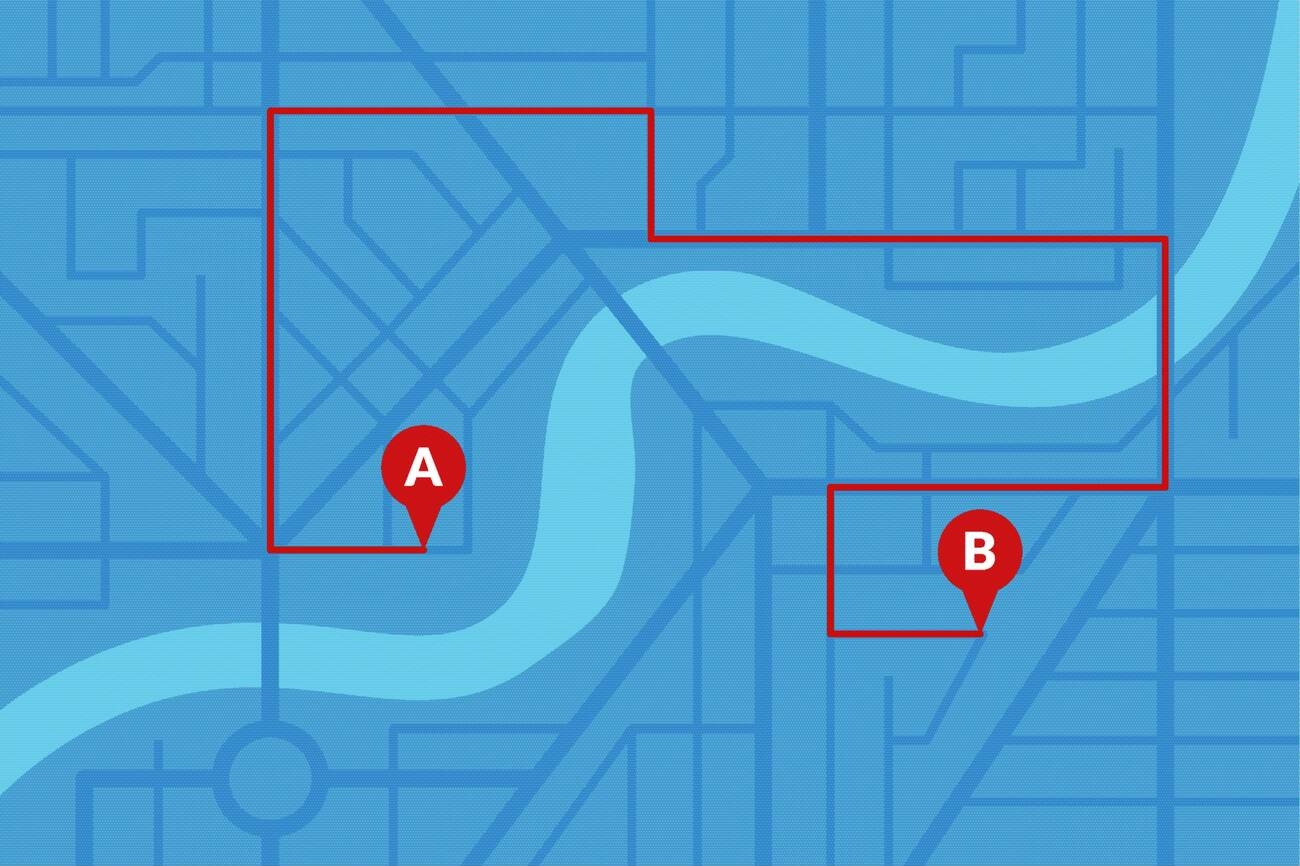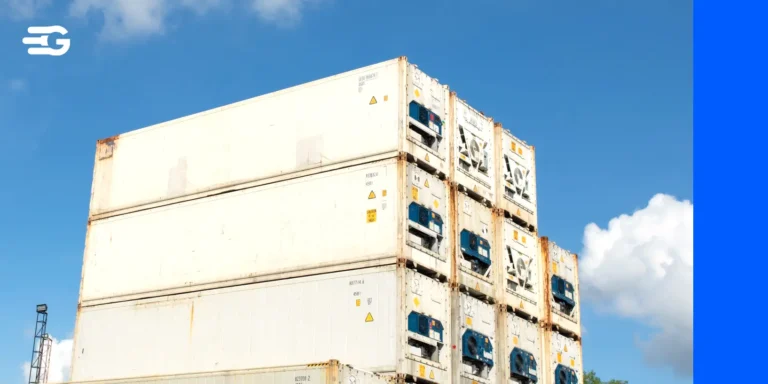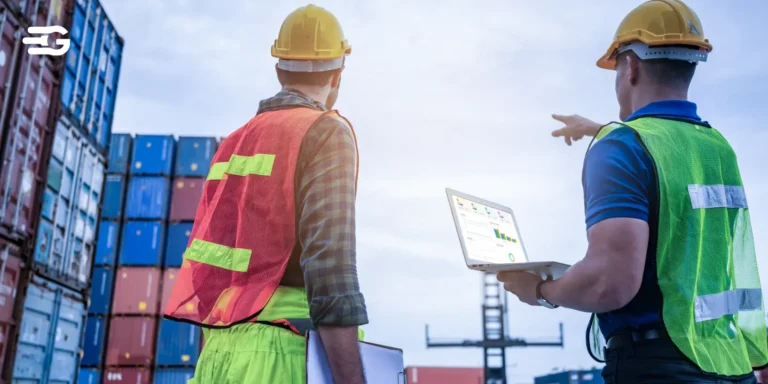Linehaul in Logistics: Definition, Importance, and Key Differences Explained
Logistics is a complex series of activities that makes sure products get from point A to point B without any problems. Whether it’s a local delivery or a cross-continental journey, effective transport is essential to this industry. This journey often involves complex networks of transportation that move cargo over great distances. Consider the stages involved in getting a finished good, like your morning coffee, from harvesting to processing to packing to your neighbourhood store. Every stage of this process depends on a smoothly operating system to guarantee efficient and timely movement.
We’ll examine one of the core components of this network in this blog post: the procedure that serves as the foundation for long-distance freight transportation- Line Haul. Stick with us till the end as we explore the intricacies of this key component and its crucial role in the world of logistics.
Definition and Overview of Linehaul Services
The logistics network is enormous and complex, and linehaul services are the powerful engine that powers long-distance freight transportation within it. Their area of expertise lies in moving cargo over long distances between predetermined locations, which are commonly known as ‘stations’ in logistics. Cities, ports, and even warehouses may be included in these stations.
The importance of Linehaul can be attributed to its pivotal function in the supply chain. Linehaul services guarantee prompt and economical distribution of goods over great distances by effectively connecting producers, distributors, retailers, and eventually, the final customer. Smooth product movement is essential for firms to prosper in today’s globalised market, where competitiveness depends on reliable and efficient transportation.
The Role of Linehaul in Supply Chain Efficiency
Any supply chain’s ability to deliver items effectively and consistently determines how successful it will be. Linehaul services are essential to maximising the movement of products across large distances in this complex network. They support overall supply chain efficiency in the following ways:
Enhanced Speed and Predictability: Linehaul’s set routes and schedules make deliveries predictable. This minimises delays and interruptions in the supply chain by ensuring that commodities arrive on time at later stages.
Cost Optimisation: In order to optimise capacity, linehaul services frequently use full truckloads. They are built for volume and efficiency. This results in economical transportation, enabling companies to maximise their total freight movement expenses.
Decreased Inventory Levels: Linehaul services allow companies to keep fewer inventory items in warehouses and distribution centres since they guarantee dependable and consistent delivery. This lowers storage expenses and frees up funds for other investments.
Increased Customer Satisfaction: Linehaul services’ prompt and dependable delivery contributes to increased customer satisfaction. Establishing trust and loyalty with clients can be achieved by businesses through timely and well-maintained product delivery.
Integration with Additional Logistics Services: Linehaul services are easily integrated with additional supply chain elements. They serve as the hub that connects several forms of transportation, including intermodal transportation that includes trucks, trains, and ships.
Understanding Line Haul Operations
The logistics industry’s main driver of long-distance freight movement, line haul, presents a plethora of opportunities for companies looking for dependable and cost-effective transportation solutions. But optimising its efficacy entails more than just scheduling a shipment. A greater comprehension of line haul’s inner workings and the complex web of operations that supports it is essential to maximising its potential.
Key Components of Line Haul Transportation
The backbone of long-distance freight moving, line haul operations are made up of a number of essential parts that work together. To maximise line haul services’ efficacy and efficiency, one must comprehend these components.
Equipment: The specialised equipment used to move commodities over vast distances is the foundation of line haul operations. The main fleet consists primarily of heavy-duty vehicles, however there are several trailer alternatives to suit different kinds of cargo. Flatbeds are made for big or oddly shaped cargo, dry vans provide general-purpose storage, and reefer trailers maintain specified temperatures for perishable commodities. Furthermore, to maximise flexibility and reach, intermodal transportation may include containers that move easily between trucks, trains, and ships.
Routes and Scheduling: Well-planned schedules and established routes serve as the cornerstones of line haul operations. These routes have been thoughtfully planned to maximise effectiveness and reduce travel time. Factors including traffic patterns, road conditions, and potential delays are rigorously examined during route design. Once created, careful adherence to schedules is vital to ensure timely delivery and maintain the integrity of the supply chain.
Network Design: A strong network that links different sites in the supply chain is essential to the success of line haul operations. This network includes both the origins or the places where products are picked up, and the destinations- the places where they are delivered. Furthermore, intermodal hubs are essential because they make it easier for cargo to be transferred between various means of transportation. The process of network design entails the deliberate selection and optimal arrangement of these sites to guarantee the most effective movement of commodities throughout the logistics environment.
How Linehaul Services Impact Freight Movement
Linehaul services have a significant impact on how freight is transported across long distances. Their influence is felt in many important areas, influencing anything from delivery speed to overall process cost-effectiveness.
Streamlining the Supply Chain: Linehaul provides predictable delivery times by operating on predetermined routes and schedules. This minimises delays and interruptions by ensuring that commodities are moved between stages of the supply chain in a timely manner. Linehaul services provide a major contribution to faster overall delivery times by expediting the long-distance portion of the voyage. This helps firms better fulfil consumer expectations and deadlines.
Reducing Delivery Costs: Linehaul services are built for volume and efficiency. In order to make the most of their vehicles’ capacity and provide economical transportation, they frequently use full truckloads. When businesses compare this to other options like less-than-truckload (LTL) shipping, the freight costs per unit are reduced. By optimising transportation costs, linehaul services contribute to improved profitability for businesses and ultimately, enhance the affordability of goods for consumers.
Impacting Inventory Management: Businesses are able to keep reduced inventory levels at warehouses and distribution centres because of linehaul services’ dependable and predictable delivery. This frees up precious capital that can be used to invest in other areas of the business and lowers the storage expenses associated with holding excess inventory. Lower inventory levels also reduce the possibility of product damage or obsolescence, which further reduces costs.
Increasing Customer happiness: Improving customer happiness is a direct result of prompt and dependable goods delivery made possible by effective linehaul services. Establishing trust and loyalty with clients can be achieved by businesses through timely and well-maintained product delivery. This promotes satisfying client experiences, which are necessary for success in the cutthroat market of today.
Linehaul vs. Long Haul: Identifying the Differences
Accurate terminology plays a vital role in the evolving field of logistics to ensure seamless and effective operations. Two terms that often cause confusion are linehaul and long haul. Even while they both entail moving cargo across large distances, their particular subtleties are very different. Businesses must comprehend these differences in order to successfully navigate the intricate world of logistics and choose the best option for their particular requirements.
Comparative Analysis of Linehaul and Long Haul
Although the transportation of commodities over great distances is a common feature of both linehaul and long haul, their precise qualities and applications are very different. Businesses must be aware of these differences in order to maximise their logistics operations and choose the best option for their requirements.
This is a comparison of linehaul and long haul that shows the main distinctions between them in a number of areas:
| Characteristics | Linehaul | Long Haul |
| Distance | Shorter distances, typically between 150 and 250 miles. | Longer distances, often exceeding 250 miles and can often range to thousands of miles. |
| Duration | Shorter trip duration, often completed within a single day. | Longer trip duration, may involve multiple days and overnight stays. |
| Schedule | Fixed schedules with regular pick-up and drop-off points. | Flexible schedules may involve irregular routes and destinations. |
| Drivers | Typically work regular hours and return home at the end of the day. | May spend extended periods away from home, requiring overnight stays. |
| Regulations | Subject to fewer regulatory requirements | Subject to stricter regulations due to longer distances and driving times |
| Cost | Generally more cost-effective due to shorter distances and simpler logistics | May be more expensive due to increased driver costs and potential overnight stays |
| Use Cases | Ideal for predictable, high-volume transportation between fixed locations | Suitable for long-distance, one-time shipments or irregular routes |
Choosing the Right Haulage Option for Your Needs
Depending on your unique needs, linehaul and long haul services provide different benefits when it comes to long-distance freight movement. It’s critical to comprehend their primary attributes and determine which choice best suits your logistical needs in order to make an informed choice.
Choose Linehaul when:
You have consistent, high-volume freight: Linehaul is excellent at moving big loads of cargo between fixed destinations, frequently adhering to set schedules. For companies that ship frequently between warehouses, distribution hubs, or large cities, this makes it perfect.
Cost efficiency is priority: Linehaul services are typically less expensive than long haul alternatives because of their shorter distances and easier logistics. Businesses trying to maximise their transportation costs without sacrificing efficiency may find this especially helpful.
Time is not of essence: Although it isn’t as quick as alternative options like air freight, linehaul provides a good cost-benefit ratio. This works well in scenarios when delivering on time is crucial but not at the expense of extraordinary speed.
Choose Long Haul when:
You need to go great distances: Long range shipping may be a better option if your shipment must travel over state boundaries or over a thousand miles. These services are appropriate for certain logistics requirements since they are built for long-distance travel and can support heavier cargoes.
It’s important to be flexible: Compared to linehaul’s set routes, long haul gives greater flexibility in terms of pick-up and drop-off sites. Businesses that need specialised delivery solutions or have erratic shipping destinations may find this advantageous.
There is not much time: Long haul services can provide quicker delivery dates for essential shipments, although at a much higher price. Long haul may be the best option if your company needs vital goods delivered very quickly, even at the possible expense of a higher premium.
The Benefits of Linehaul Services
One vital component lies at the centre of the complex field of logistics, that is efficient freight movement. While there are many options available for moving cargo, linehaul services are particularly noteworthy because they are the main force behind long-distance delivery. But their actual worth goes well beyond just transporting goods. Linehaul provides a plethora of advantages that can greatly improve your company’s logistics operations and boost overall success.
Cost Efficiency and Time Savings
When it comes to logistics, speed is of the essence. Shippers always try to strike a balance between timely delivery and cost-effectiveness. Fortunately, linehaul services provide a big help, saving businesses money and shortening transportation times.
Economies of Scale: High volumes are ideal for linehaul services. When feasible, they employ complete truckloads to optimise capacity and reduce vacant space. This results in reduced unit costs overall when compared to other choices such as less-than-truckload (LTL) shipping.
Routes and Scheduling Optimisation: Linehaul runs on predetermined routes and schedules, which facilitate effective planning and fuel optimisation. This lowers needless trip time and fuel usage, which helps shippers save even more money.
Dedicated Routes: Linehaul services use dedicated routes to move cargo straight from the point of origin to the final destination, as opposed to LTL shipping, which requires numerous pauses and consolidations. This guarantees quicker delivery dates and reduces delays.
Predictable Schedules: Transit times are predictable when predetermined schedules are followed. For companies who need to effectively meet customer delivery expectations and control inventory levels, this is essential.
While linehaul transportation presents notable advantages, leveraging logistics management software can amplify its efficiency. These software solutions offer real-time tracking, route optimization tools, and automated communication platforms, empowering businesses to monitor shipments in real-time for transparency and proactive troubleshooting. Check out our blog to know more about our list of top logistics management softwares for your business.
You can also consider utilizing platforms like GoComet, which provide real-time visibility for your shipments. This invaluable tool aids in optimizing your operational planning, ultimately resulting in time and cost savings.
Enhanced Reliability and Predictability in Shipping
Linehaul services are a pillar of consistency and predictability in the ever-changing world of logistics, where success depends on timelines and consistency. For companies that handle frequent and large-volume shipments, they provide a host of benefits that guarantee a seamless flow of goods and build client trust.
Fixed Schedules and Routes: Linehaul provides reliable and consistent travel times by operating according to predetermined schedules and routes. With precise knowledge of the arrival times of shipments at their destinations, this enables firms to efficiently organise their supply chains.
Reduced Delays and Disruptions: Linehaul services considerably lower the chance of delays and disruptions by following predetermined timetables and avoiding pointless stops. This results in increased dependability and guarantees that items arrive at their destinations on schedule, even during busy times of the year.
Dedicated Resources: Linehaul companies frequently set aside drivers and specialised equipment for frequent, large-volume shipments. This individualised strategy reduces the possibility of delays brought on by things like driver inexperience with routes and guarantees consistent quality of service.
Streamlined Processes: Pre-planned loading and unloading protocols are one example of a streamlined process that might be advantageous for frequent, high-volume shipments. As a result, pick-up and drop-off times are shortened, adding to the transportation process’s overall dependability and effectiveness.
Better Inventory Management: Businesses can maintain ideal inventory levels, lowering the risk of stockouts and overstocking, thanks to the predictable nature of linehaul deliveries. This enhances cash flow and reduces storage expenses, which boosts overall company productivity.
Future Trends in Linehaul Transportation
Linehaul transportation is one area of logistics that is continuously changing. The future of linehaul is being shaped by a number of fascinating developments as technology develops and industry demands shift. These developments have the potential to significantly increase productivity, lower expenses, and improve sustainability throughout the logistics ecosystem, ultimately empowering businesses to operate with greater agility and resilience in the years to come.
Innovations Shaping the Future of Linehaul
Technology breakthroughs and changing market trends will bring a plethora of innovative developments in linehaul transportation in the future. These developments have the potential to completely transform the way that items are transported over long distances, resulting in more productivity, lower costs, and enhanced sustainability for the logistics ecosystem.
Automation and artificial intelligence (AI): These two technologies are drastically changing a number of logistics-related fields, including linehaul. Although they are still in the early stages of development, self-driving trucks have the potential to operate around-the-clock and eliminate driver tiredness, which might result in higher productivity and possibly lower costs. Furthermore, in order to reduce expenses and their negative effects on the environment, AI-powered route optimisation tools can design dynamic and fuel-efficient routes.
Blockchain Technology: This transparent and safe technology has the potential to completely transform logistics chain data sharing. Blockchain technology may help businesses and customers alike by improving inventory management, cutting down on delays, and increasing transparency by offering real-time tracking and visibility into cargo location and status.
Internet of Things (IoT): By adding sensors and tracking devices to trucks and trailers, useful real-time data on things like tyre pressure, fuel usage, and any mechanical problems can be obtained. Utilising this data for predictive maintenance helps optimise resource allocation, minimise downtime, and increase operational efficiency, all of which lower costs.
Intermodal Transportation: Improving long-distance freight transit requires a smooth integration of several modes of transportation, such as trucks, trains, and ships. Intermodal hubs and standardised containerisation allow linehaul services to minimise expenses and their negative environmental effects without sacrificing productivity.
Focus on Sustainability: Linehaul operators are actively looking for sustainable ways to reduce their carbon footprint as environmental concerns grow. In order to lower overall emissions, this entails investigating alternative fuels like biodiesel and electric cars, putting fuel-efficient procedures into place, and streamlining routes.
Check out our blog on ‘ 7 supply chain trends in 2023’ to know more about how these emerging trends could impact linehaul transportation and affect your business.
Sustainability and Efficiency in Linehaul Services
Sustainable practices are becoming more and more important in all fields, including the vital field of logistics. Linehaul services are also starting to step in the game to embrace the challenge of sustainability while upholding the fundamentals of effectiveness and economy. Linehaul practices are getting shaped for a greener future, which has important ramifications for the industry’s future.
Alternative Fuels: In an effort to lessen their reliance on fossil fuels and cut down on carbon emissions, linehaul companies are looking into electric trucks, hydrogen-powered cars, and biodiesel. Even if there are still issues with cost parity and infrastructure development, these options show promise for a more sustainable future.
Fuel-Efficient Practices: Some of the methods linehaul services are reducing fuel usage include using lightweight materials in trailers, optimising routes, and implementing eco-driving tactics. These procedures result in decreased running expenses in addition to being environmentally responsible.
Intermodal Transportation: Long-distance freight movement can have a major positive environmental impact when several modes of transportation, such as trucks, trains, and ships, are seamlessly integrated. Intermodal hubs and standardised containerisation can help linehaul services operate more sustainably and efficiently.
Conclusion: Leveraging Linehaul for Logistics Success
In the modern, interconnected world, effective goods transportation is essential to international trade. Linehaul services are the primary force behind long-distance freight transportation inside this intricate network. They are essential to the efficient and timely transportation of goods over great distances, linking manufacturers, distributors, retailers, and, in the end, the final consumer. Linehaul services enable businesses to optimise their supply chains, improve customer happiness, and achieve better success in the competitive marketplace by providing predictability, cost-efficiency, and reliability.
Next Steps for Implementing Efficient Linehaul Solutions
To fully utilise linehaul services, logistics experts can take the following practical steps:
Examine your transportation needs: Determine the usual volume, routes, and time limits of your shipments. This will assist you in deciding if linehaul is the best choice for your particular needs.
Partner with a dependable linehaul provider: Select a supplier who has a track record of effectiveness, safety, and affordability. To be sure they can fulfil your unique demands, check their network coverage, equipment, and experience.
Explore the latest developments in technology: Throughout your linehaul operations, use digital solutions like logistics management software to improve route planning, obtain real-time visibility, and streamline communication.
Adopt sustainable practices: Work with your linehaul supplier to investigate fuel-efficient techniques, alternative fuels, and multimodal transportation choices. Setting sustainability as a top priority will ensure economical and successful logistics operations while also helping to create a greener future.
Through an awareness of linehaul services’ advantages and proactive measures to put them into practice, your business can open up a world of benefits that support improved productivity, higher profitability, and a more sustainable supply chain.





